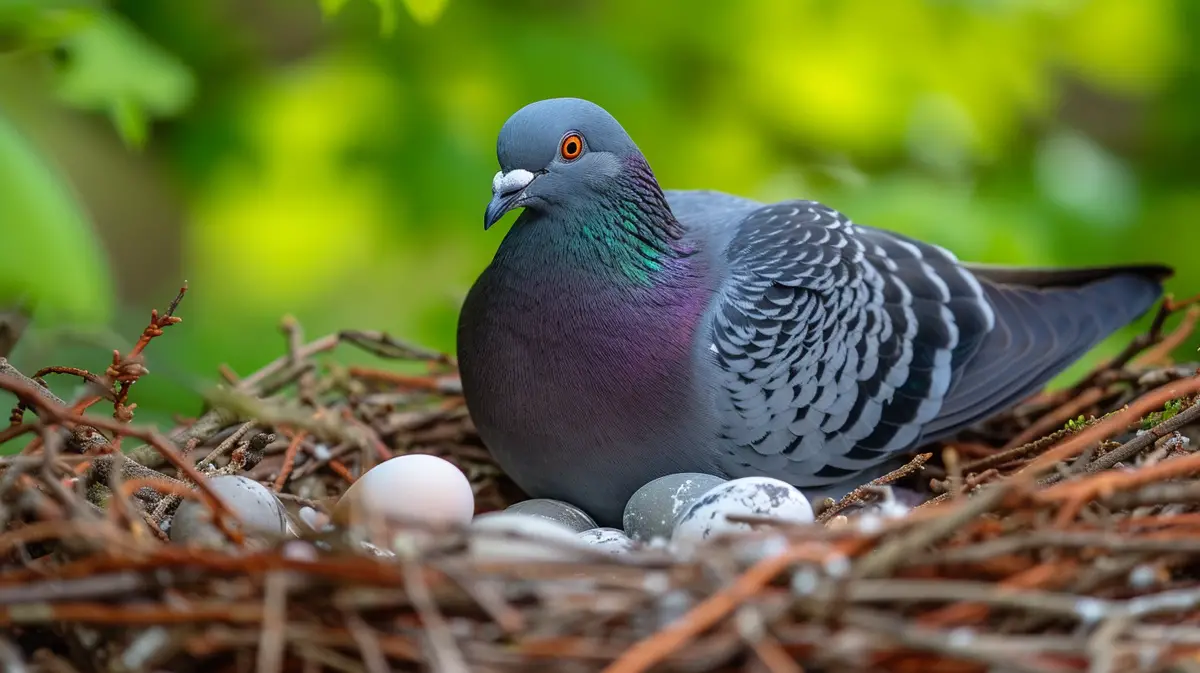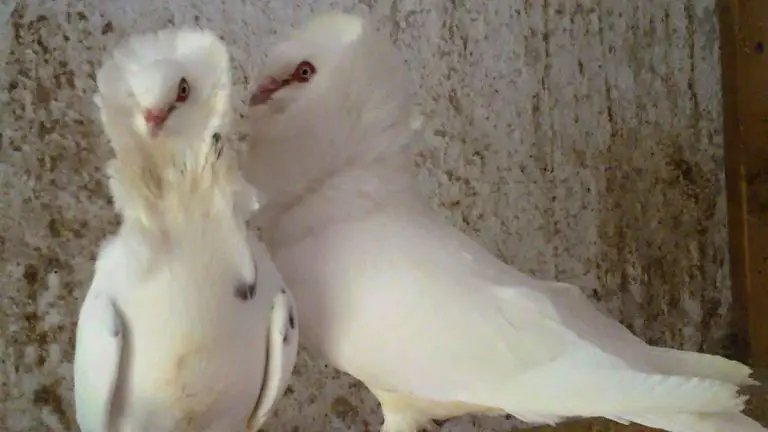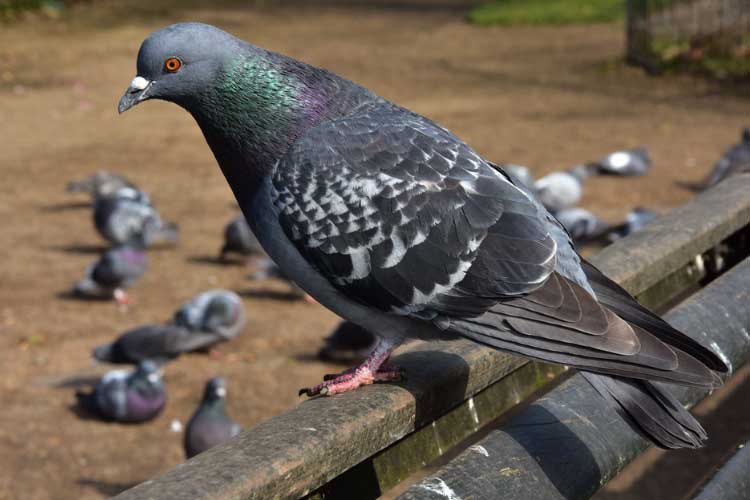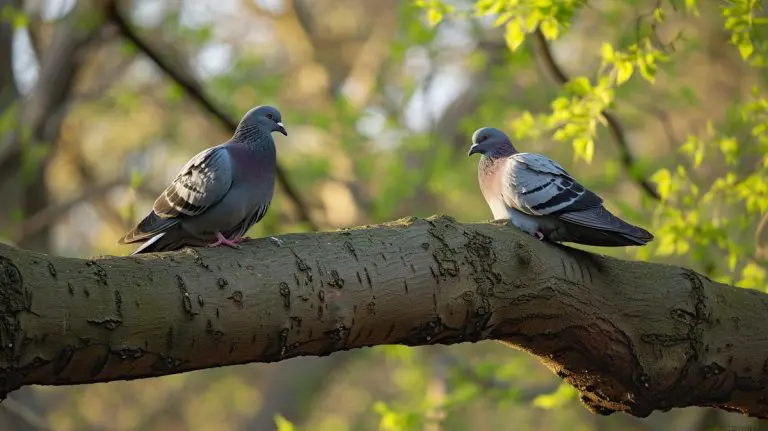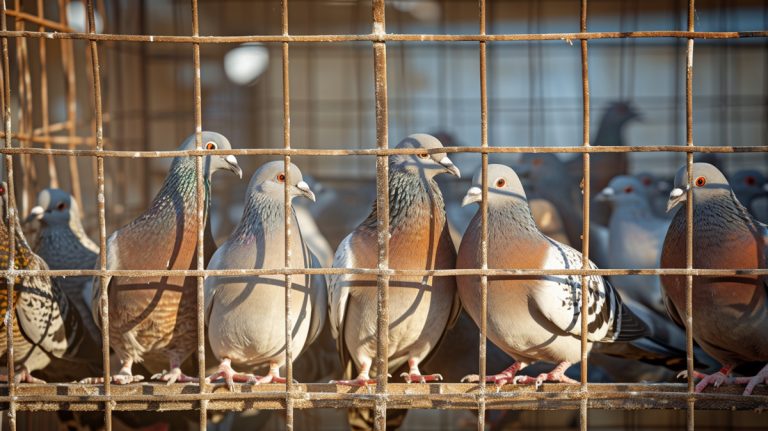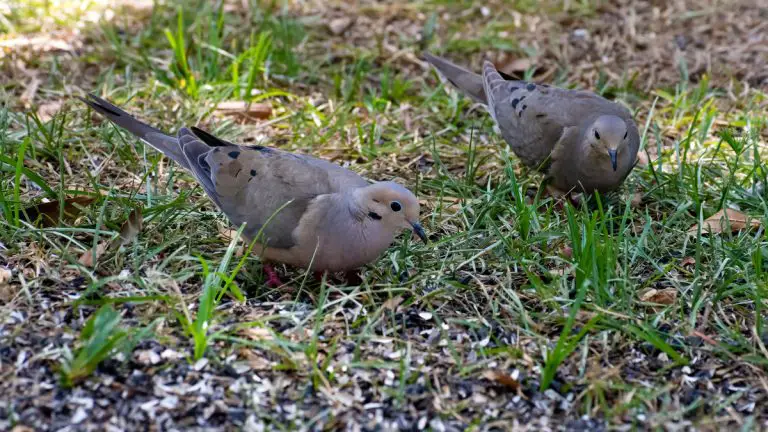Pigeon Egg Hatch Time: Importance of Humidity and Parental Behavior
Ever wondered how long it takes for pigeon eggs to hatch? Well, you’re in the right place! As an experienced bird enthusiast, I’ve spent countless hours observing and studying the fascinating world of pigeons. In this article, I’ll be diving into the topic of pigeon egg hatch time, shedding light on the process and providing you with some interesting insights. So, if you’re curious about the miracle of life unfolding within those delicate shells, grab a cup of coffee and join me on this avian adventure!
When it comes to the incubation period of pigeon eggs, there are a few factors at play. From the moment the female pigeon lays her eggs, a delicate balance of warmth and protection begins. In my years of research, I’ve discovered that the average incubation period for pigeon eggs ranges from 17 to 19 days. However, it’s important to note that this timeframe can vary depending on various factors such as temperature, humidity, and the individual behavior of the parent pigeons. So, let’s delve deeper into the intricacies of pigeon egg hatch time and uncover the secrets behind this captivating process.
Factors Affecting Pigeon Egg Hatch Time
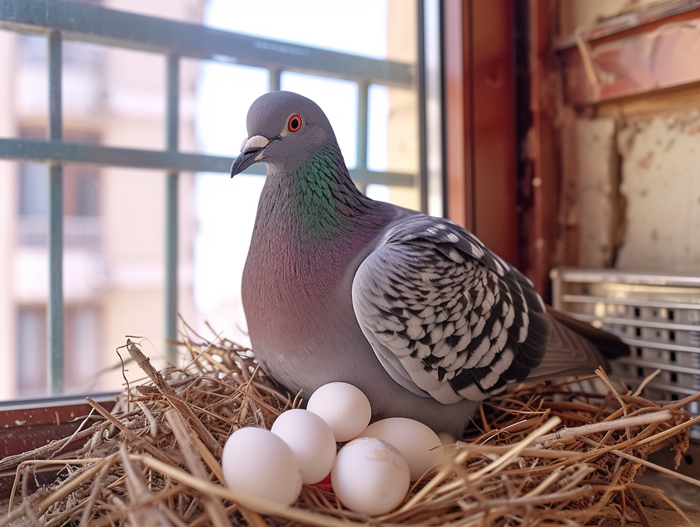
When it comes to the hatch time of pigeon eggs, several factors can influence the duration of the incubation period. As a bird enthusiast with years of observation and study, I have noticed certain elements that can impact how long it takes for pigeon eggs to hatch. Let’s take a closer look at these factors:
1. Temperature: The temperature at which the eggs are kept plays a crucial role in determining how quickly they will hatch. Pigeon eggs require a consistent temperature range of 38-40 degrees Celsius for optimal incubation. Fluctuations in temperature can either speed up or delay the hatching process.
2. Humidity: Similar to temperature, humidity levels have an impact on pigeon egg incubation. The ideal humidity range for successful hatching is 55-60%. Higher humidity levels can lead to longer incubation periods, while lower levels may result in faster hatching. It’s essential to maintain the proper humidity balance throughout the incubation process.
3. Parental Behavior: The behavior of the parent pigeons also influences the time it takes for the eggs to hatch. Both the male and female pigeons take turns incubating the eggs. If one of the parents is less diligent in their incubation duties, it may prolong the hatch time. Conversely, when both parents diligently tend to the eggs, the hatching process is more likely to occur within the typical timeframe.
4. Egg Quality: The overall quality of the eggs can impact their hatch time. Pigeon eggs that are healthy and well-formed have a higher chance of hatching within the standard incubation period. On the other hand, eggs with defects or abnormalities may experience delays or fail to hatch altogether.
By considering these factors, we can gain a better understanding of the incubation process and the variables that affect the hatch time of pigeon eggs. It’s fascinating to witness how nature works in harmony, with various elements working together to ensure the successful hatching of pigeon chicks. Now that we have explored these factors, let’s delve into the incredible transformation that takes place inside the egg during the incubation period.
Understanding the Incubation Period
The incubation period is a crucial stage in the development of pigeon eggs. During this time, the eggs are being kept warm and protected by the parent pigeons, allowing the embryos inside to grow and develop. In this section, I will guide you through the various aspects of the incubation period and help you understand its importance in the hatching process.
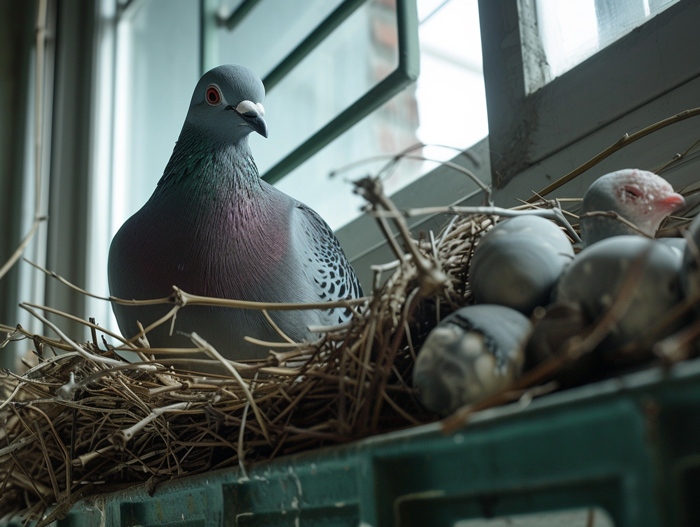
Temperature and Humidity
One of the key factors that affect the incubation period is temperature. The eggs need to be kept at a consistent and optimal temperature for proper development. Usually, the ideal temperature for pigeon eggs ranges from 36.5 to 38 degrees Celsius (97.7 to 100.4 degrees Fahrenheit). Fluctuations in temperature can negatively impact the development of the embryos and extend the incubation period.
Along with temperature, humidity plays a crucial role in ensuring successful incubation. Pigeon eggs require a relative humidity level of 50 to 60 percent. This level of humidity helps retain the necessary moisture in the eggs, preventing them from drying out. Maintaining the right humidity level is essential for proper gas exchange and the overall well-being of the embryos.
Parental Behavior
Another important factor that influences the incubation period is the behavior of the parent pigeons. The success of the hatching process greatly depends on the diligence and commitment of the parents in incubating the eggs. Pigeons take turns to incubate their eggs, with both the male and female sharing this responsibility. Each parent spends approximately 12 hours incubating the eggs before switching. This constant attention and rotation ensure that the eggs receive the warmth they need for proper development.
Egg Quality
The quality of the eggs themselves also plays a significant role in determining the incubation period. Healthy, fertilized eggs are more likely to hatch within the standard incubation period. Factors such as nutrition, genetics, and the age of the parent pigeons can impact the quality of the eggs. Pigeon breeders and enthusiasts need to pay special attention to breeding practices and egg selection to ensure optimal hatch rates.
Temperature and Its Impact on Hatch Time
Maintaining the right temperature is crucial for the successful hatching of pigeon eggs. The temperature within the incubator plays a significant role in determining the hatch time. Consistently maintaining the optimal temperature range ensures healthy development and timely hatching.
The ideal temperature for pigeon eggs during incubation is between 37.5°C to 38.3°C (99.5°F to 100.9°F). Any fluctuations outside this range can disrupt the development process and prolong the hatch time. Temperature deviations during incubation can lead to a variety of issues, including delayed hatching or even complete failure to hatch.
It’s important to note that higher temperatures can accelerate the development process and result in early hatchlings. However, this can lead to chicks that are not fully developed and may face health challenges. On the other hand, lower temperatures can significantly extend the incubation period, potentially delaying hatching and affecting the overall success rate.
To ensure the optimal temperature for pigeon eggs, it’s crucial to use a reliable incubator with accurate temperature control. Regular monitoring and adjustment of the temperature are necessary throughout the incubation process.
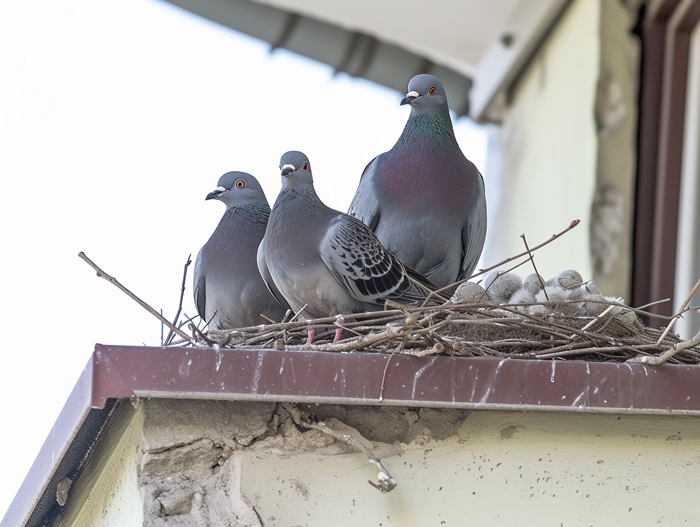
The Role of Humidity in Hatch Time
Another essential factor that impacts the hatch time of pigeon eggs is humidity. Maintaining appropriate humidity levels creates a suitable environment for proper chick development.
The ideal humidity range for pigeon eggs during incubation is between 55% to 60%. Insufficient humidity can cause the eggs to lose moisture and result in a longer incubation period. Conversely, excessive humidity can hinder proper gas exchange, leading to underdeveloped chicks or even egg death.
Proper humidity levels in the incubator can be maintained by using a humidifier or water trays. Regular monitoring of humidity is vital to ensure a consistent environment for the eggs.
It’s important to note that both temperature and humidity work in tandem to create an optimal incubation environment. Maintaining the proper balance between the two is crucial for the successful hatch of pigeon eggs. Regular monitoring and adjustments will help maximize the chances of healthy, timely hatching.
By understanding the impact of temperature and humidity on the hatch time of pigeon eggs, we can ensure a conducive environment for the growth and development of these beautiful creatures.
Humidity Requirements for Successful Hatching
When it comes to hatching pigeon eggs, maintaining the ideal humidity levels plays a crucial role in ensuring healthy and timely hatching. Let’s explore the specific humidity requirements for successful pigeon egg hatching.
Optimal Humidity Range
To maximize the chances of a successful hatch, it is essential to maintain the humidity levels within the range of 55% to 60%. This range provides an ideal environment for the proper development of the chick inside the egg.
Effects of Insufficient Humidity
If the humidity levels fall below the recommended range, it can have adverse effects on the hatching process. Insufficient humidity can result in a longer incubation period, as the egg will take more time to develop. This delay in hatching can disrupt the synchronization of the eggs, causing them to hatch at different times, leading to potential complications.
Effects of Excessive Humidity
On the other hand, excessive humidity can also be detrimental to the hatching process. When the humidity levels surpass the recommended range, it hinders the exchange of gases through the eggshell. This can lead to underdeveloped chicks or even egg death, as the chicks won’t receive proper oxygen levels for their growth and survival.
Regularly monitoring and adjusting the humidity levels is crucial to maintain the optimal environment for successful hatching. Consider using hygrometers, which are instruments specifically designed to measure humidity, to ensure that the humidity levels remain within the recommended range throughout the incubation period.
Remember, finding the right balance between temperature and humidity is vital for achieving healthy and timely hatching of pigeon eggs. By paying attention to these factors and making necessary adjustments, you can increase the chances of successful hatching and nurture the growth of healthy pigeon chicks.
With this information, you now have a better understanding of the importance of humidity for successful pigeon egg hatching.
In my years of studying pigeon hatching, I’ve come to understand that the behavior of the parent pigeons plays a significant role in the hatch time of their eggs. Understanding these behaviors can help us create the optimal conditions for successful hatching.
Parental Behavior and its Influence on Hatch Time
Parent pigeons are known for their meticulous nesting habits. They carefully construct their nests using twigs, grass, and other materials, creating a secure and comfortable environment for their eggs. This attentiveness to nest-building can have a direct impact on the hatch time. A well-built nest provides insulation and helps maintain a consistent temperature, promoting healthy embryo development.
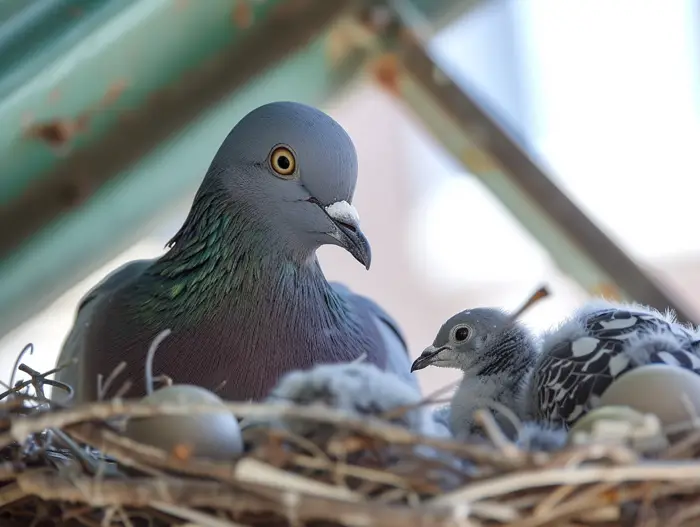
1. Incubation Shifts
Both male and female pigeons participate in incubating the eggs. They take turns to keep the eggs warm, ensuring a constant temperature for optimal development. This behavior is crucial as it prevents the eggs from getting too cold, which can extend the hatch time. By consistently alternating their incubation shifts, the parent pigeons maintain an ideal environment for the eggs to develop and hatch on time.
2. Egg Rotation
During incubation, parent pigeons carefully rotate the eggs multiple times a day. This rotation helps ensure that the developing chick receives an equal supply of nutrients and oxygen. By rotating the eggs, the parent pigeons prevent the yolk from sticking to the shell, allowing for proper development. This attentive behavior contributes to a healthy incubation process and can influence the hatch time.
3. Brooding Behavior
Parent pigeons exhibit a unique brooding behavior where they sit on the eggs to provide warmth and protection. This behavior helps in maintaining a stable temperature inside the nest, which is crucial for the proper development of the embryos. The consistent warmth provided by the parent pigeons promotes faster development and can impact the hatch time of the eggs.
Understanding these parental behaviors and their influence on hatch time is essential for creating the perfect conditions for successful pigeon egg hatching. By replicating these behaviors in controlled environments, we can ensure optimal embryo development and timely hatching.
Remember, maintaining the right balance of temperature and humidity is crucial. In the next section, we will explore the importance of temperature regulation during the incubation process.
Conclusion
Maintaining the right balance of humidity is crucial for successful pigeon egg hatching. By keeping humidity levels within the range of 55% to 60%, we can ensure optimal conditions for the eggs to hatch. Insufficient humidity can lead to longer incubation periods and potential complications, while excessive humidity can hinder gas exchange and result in underdeveloped chicks or egg death. Regular monitoring and adjustment of humidity levels are essential to create the perfect environment for hatching.
In addition to humidity, understanding parental behavior is also key to successful hatch time. Parent pigeons exhibit meticulous nest-building habits, alternate incubation shifts, rotate the eggs, and engage in brooding behavior. These behaviors play a significant role in creating the ideal conditions for the eggs to hatch.
As we have explored in this article, maintaining the right balance of temperature and humidity is crucial for successful pigeon egg hatching. By understanding the importance of humidity and parental behavior, we can create the optimal environment for these eggs to hatch. In the next section, we will delve further into the topic of temperature regulation and its impact on pigeon egg hatch time.
